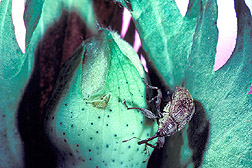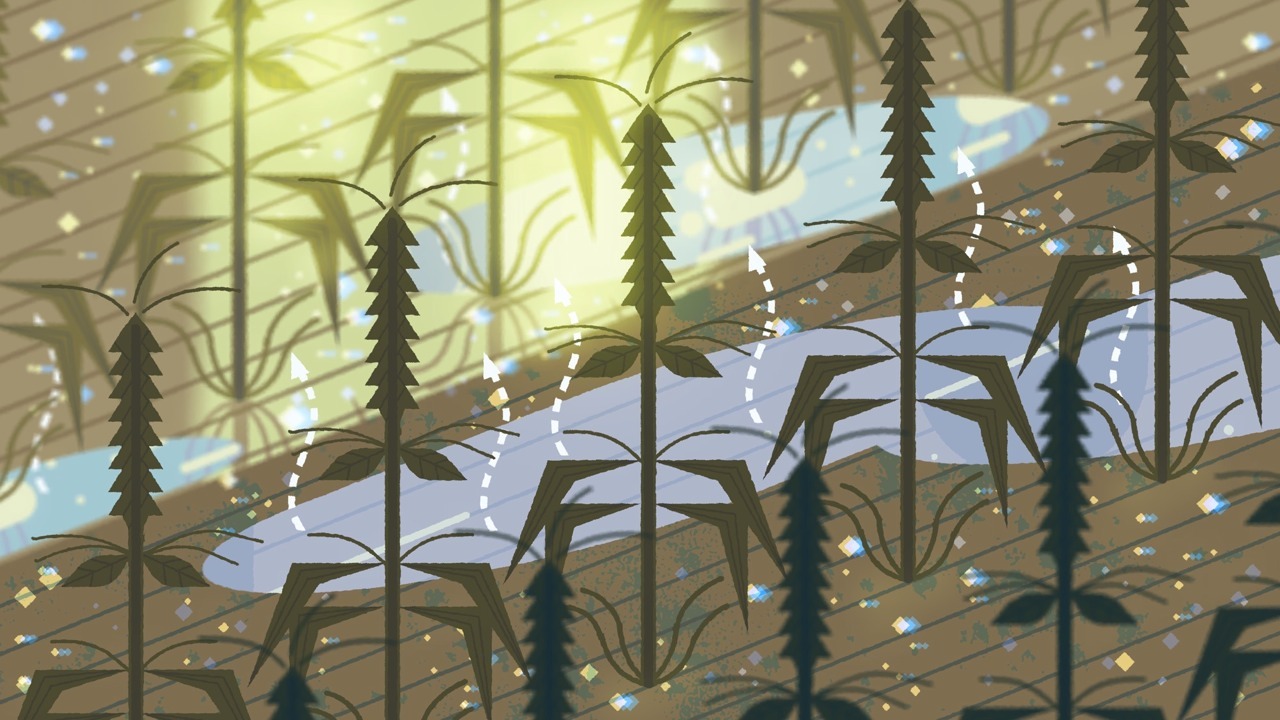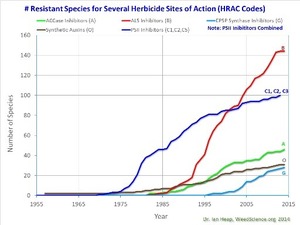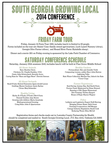Roundup doesn’t work too well….
And this is not our corn; this patented seed corn is on Bemiss Road north of Valdosta, GA.
Because Genetically modified crops risk widespread ruin, they should not be permitted without far greater scientific knowledge, for which the burden of proof falls on those proposing GMOs, not those opposing, say experts in risk and ruin.
 Risk management or mitigation may work for localized harm,
but GMOs risk widespread systemic damage, which is ruin, and to prevent that
the precautionary principal is needed:
Risk management or mitigation may work for localized harm,
but GMOs risk widespread systemic damage, which is ruin, and to prevent that
the precautionary principal is needed:
if an action or policy has a suspected risk of causing severe harm to the public domain (such as general health or the environment), and in the absence of scientific near-certainty about the safety of the action, the burden of proof about absence of harm falls on those proposing the action.
A paper by Nassim Nicholas Taleb and co-authors lays out Continue reading
Dr. Pat Duncan, director of the Georgia Center for Aquaculture Development, Fort Valley State University, Fort Valley, GA, will explain aquaculture.
Safe local food movements are no longer a passing fad as consumers avoid the dangers and fears associated with processed industrialized food. Any number of associated causes drives concerns about GMO plants, pesticides, and other chemicals. With many options and systems designs available for cost effective ways of safe food production, one system with unique opportunities is aquaponics.
As with most food production systems, there are twists and turns on systems and designs to approach the development and management of an aquaponics system. Ranging from small do-it-yourself systems to elaborate automated commercial designs, each of these systems requires Continue reading
 Another Cosmos script Neil deGrasse Tyson read maybe he should have paid
more attention to regarding the situation with short-sighted
corporate monopolies misusing cherry-picked science to promote
their profits at the expense of all of us and the only planet we’ve got.
Another Cosmos script Neil deGrasse Tyson read maybe he should have paid
more attention to regarding the situation with short-sighted
corporate monopolies misusing cherry-picked science to promote
their profits at the expense of all of us and the only planet we’ve got.
Talking about the fall of the ancient Mesopotamia civilization, the script Dr. Tyson read for Cosmos Episode 11, The Immortals, says: Continue reading
In his recent misstatements about GMO foods,
Neil deGrasse Tyson has fallen for what he called the misuse of the
authority of science, in
Episode 7 of Cosmos, the Clean Room, which recounted Clair
Patterson’s discovery of lead pollution by leaded gasoline.
That use of lead had been promoted and defended
by Robert E. Kehoe’s “scientific” papers.
The script Tyson read (but did not write) said: Continue reading
 With GM crops come herbicides, which breed resistant weeds.
This has happened in about a decade for the worse mutants.
We can reverse the problem by reversing the spraying,
using plowing, cultivation, and crop rotation instead.
With GM crops come herbicides, which breed resistant weeds.
This has happened in about a decade for the worse mutants.
We can reverse the problem by reversing the spraying,
using plowing, cultivation, and crop rotation instead.
Mark Jeschke wrote for Pioneer Dupont, Crop Insights: Weed Management in the Era of Glyphosate Resistance, Continue reading
Heather Davis will speak at South Georgia Growing Local 2014:
My presentation will be about how I became interested in honeybees and where my research has led me. It will begin with very basic information about honeybees and how they are important to our ecology. Then I will touch on how the monocultures and industrialized farming, pesticides and GMO/systemic pesticides are killing the bees and our culture and environment as we know it.
I will have pamphlets on GMO’s, how to make your own pesticides/insecticides that are safe for pollinators, what plants to grow to encourage a bio-diverse ecology at home for pollinators and a few others.
She’s on facebook as Sage Apiaries, “Pollination is the future of our food!”
Her conference bio: Continue reading
Elizabeth (B) Fraleigh O’Toole, President of O’Toole’s Herb Farm will speak at South Georgia Growing Local 2014:
This presentation will touch on growing herbs for pleasure, growing herbs for the fresh cut market and growing herbs in greenhouse production for wholesale and retail sales. I will cover the joy and positive healing energy these plants give, the passion of growing and using them and how I got to this place.
Her farm was featured in the April-May, 2012, edition of Home & Design:
“A village is happening out here,” B said during a tour of her 114-acre farm’s greenhouses, gardens, retail shops and resident flock of sheep. “If you think Walmart, we’re absolutely the opposite. Small, local, knowledgeable, none of our plants genetically modified with man-made chemicals.”
 Also on
facebook.
Also on
facebook.
Her conference bio: Continue reading
Connie Hayes of Healthy Hollow Farms will speak at South Georgia Growing Local 2014,
How do we prove to customers that our products are free of genetically modified ingredients? while many homesteaders choose to be not certified or certified naturally grown, consumers are becoming more concerned with GMOs. We will offer practical tips for insuring consumers, as well as how to on certifications & non-GMO testing.

Here’s her conference bio:
Members of Coastal Organic Growers (COG), Connie & Jimmy Hayes own & operate Healthy Hollow Farms near Stilson, GA, which has been certified organic since 2007. They grow organic peanuts and raise Belted Galloway cattle. They are in the process of setting up an
on-farm processing facility for their peanuts. Connie serves on the board of Georgia Organics and has trained under Jeffery Smith with The Institute for Responsible Technology to speak on GMOs.
 Come to
SOGALO2014 and hear Connie about getting certified organic!
Come to
SOGALO2014 and hear Connie about getting certified organic!
-jsq
Likely effects of dousing 90+% of all corn, soybeans, peanuts, and cotton grown in Georgia (and elsewhere) in Roundup and other toxic chemicals, often drifting onto other people’s land, schools, shops, and churches. It’s not that hard to grow the same crops without those poisons and without the toxic seeds that require them; not that hard and more profitable.
Yes, I know Jeffrey M. Smith is not a biological scientist or medical doctor. But many of the sources he cites are.
Posted by MyScienceAcademy 29 November 2013, GMOs linked to gluten disorders plaguing 18 million Americans – report
The IRT release also indicated that glyphosate, a weed killer sold under the brand name ‘Roundup’ was also found to have a negative effect on intestinal bacteria. GMO crops contain high levels of the toxin at harvest.
“Even with minimal exposure, glyphosate can significantly reduce the population of beneficial gut bacteria and promote the overgrowth of harmful strains,” the report found.
Continue reading